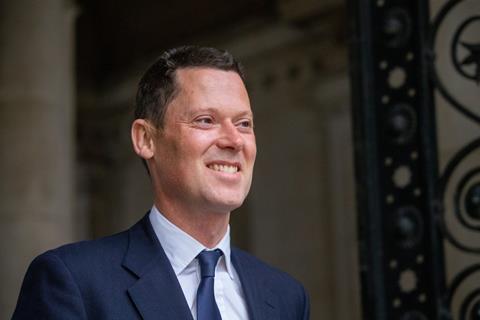Alex Chalk has made a good start as justice secretary. On Monday, MPs gave an unopposed second reading to the Victims and Prisoners Bill he had inherited from Dominic Raab. In a debate largely free from political rancour, just about everyone who spoke drew attention to a constituent who had been the victim of a serious crime.

The next day, Chalk dealt confidently with MPs’ questions. Asked specifically whether he would be going ahead with Raab’s Bill of Rights Bill, the justice secretary said he would be ‘looking carefully at the full range of the department’s work before setting out plans in detail’.
Since he is already up to speed on Ministry of Justice priorities, that can only mean Chalk is not yet ready to confirm that the bill is toast – either because the announcement has not yet been signed off by Downing Street or, more likely, it needs careful handling.
In response to Scottish nationalists who challenged his support for the home secretary’s Illegal Migration Bill, Chalk hit back by claiming, more than once, that the SNP seemed ‘hellbent on getting rid of jury trials’ – a reference to the Scottish government’s proposed pilot scheme for judge-alone rape trials.
On SLAPPs – lawsuits designed to block legitimate journalism – he promised a new statutory definition, an early dismissal process for unwarranted claims and protection against excessive legal costs. That, he disclosed, could be done as an amendment to a bill already before parliament. But Chalk stressed the need for caution: similar legislation elsewhere had produced unintended consequences.

His adept performance impressed Quentin Letts, the normally hard-to-please Times sketch writer, who thought Chalk could have been a potential party leader if his constituency had not been so marginal (‘safer seat could turn Chalk into big cheese’).
Meanwhile, the new justice secretary has given the green light to announcements that I suspect were becalmed in Raab’s in-tray. In a move to increase diversity, chartered legal executives will be eligible for appointment as recorders of the Crown court and judges of the Upper Tribunal.
The first consultation on open justice in more than a decade is inviting views on whether to extend broadcasting in the courts of England and Wales. There have been calls for criminal appeals to be televised, as well as prosecutors’ opening speeches in criminal trials and images of the defendant in court.
Chalk’s unique selling point on the criminal justice system is that he knows whereof he speaks. He understands the law of joint enterprise and knows better than to trample on judicial discretion. He has held ‘introductory meetings with the legal sector’ and looked forward to ‘engaging more with our excellent legal professionals in the weeks and months ahead’.
And, as he reminded us at the beginning of his speech on the victims bill, he was in practice at the criminal bar – telling MPs about two vulnerable young women who had been groomed, abducted and raped by five men. Chalk prosecuted them and justice was done.
‘In that case,’ he said, ‘it was only because all the moving parts of the system came together to support those vulnerable girls to give their best evidence that a just outcome was delivered.’ It must have been a long time ago.
What, though, is Chalk going to do about provisions in his bill that would allow him to call in ‘top-tier’ parole applications and decide them himself, subject only to a review by a tribunal that would know much less about the risks of an individual prisoner reoffending than the panel which first considered the case?
It was right to have a check and balance on decisions of the Parole Board, he said, but it had to be one that would work: ‘I am looking very closely at the operational aspects of this provision to ensure that it does what is intended, and provides that check and balance, while being deliverable and of course being consistent with the rule of law.’
That sounded like a potential reconsideration to me. There had been no pre-legislative scrutiny of the bill’s parole reforms and no consultation with the Parole Board or others working in the area. But Chalk remained committed to having a ‘second pair of eyes’ looking at the risk to the public and he accepted that ministers could not have the last word on what must ultimately be a judicial decision.
Another sign that Chalk is more willing to confront difficult issues than Raab had been was his willingness to think again about IPP prisoners – those detained indefinitely for ‘public protection’. This was ‘a stain on our justice system’, Chalk said, something that should never have happened.
‘I am considering carefully what the justice committee has to say about it,’ he added, ‘and I will be saying more about it in due course.’ So he should.
joshua@rozenberg.net































No comments yet